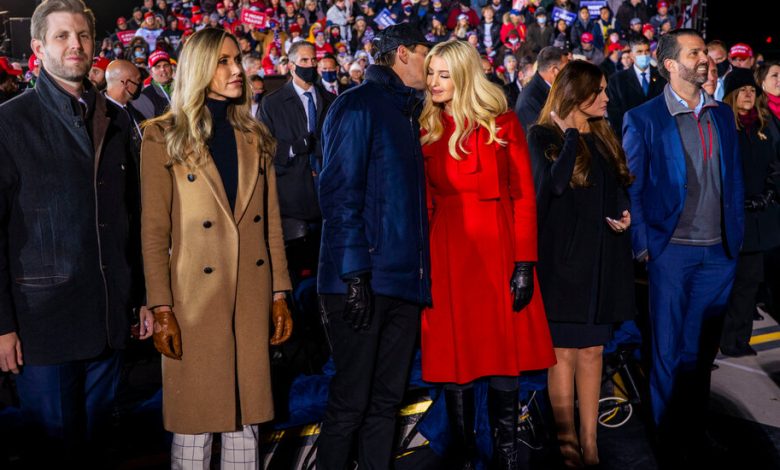Trump Family Members Set to Testify at Civil Fraud Trial Next Week

Members of the Trump family are scheduled to testify starting next week at a civil fraud trial in Manhattan, beginning with Donald Trump Jr. on Wednesday and concluding on Nov. 6 with former President Donald J. Trump.
Mr. Trump and his adult sons, Donald Jr. and Eric, are defendants in the case, which was brought by New York’s attorney general, Letitia James. The former president’s daughter, Ivanka Trump, was a defendant but an appeals court dismissed the case against her this summer. Ms. Trump is still expected to testify next week after an unsuccessful effort on Friday to avoid doing so.
A lawyer with the attorney general’s office, Kevin Wallace, said on Friday that its case would end after the former president testifies. Mr. Trump’s lawyers are expected to call their own witnesses and may bring back others for cross-examination. It is unclear when the trial, which began earlier this month, will conclude; it will most likely be before Dec. 22, when it was originally set to end.
In the lawsuit that led to the trial, Ms. James has accused the Trump family of fraudulently inflating the value of its assets to obtain favorable treatment from banks and insurance companies. Before the trial, the judge overseeing it, Arthur F. Engoron, found in the attorney general’s favor, ruling that Mr. Trump and the other defendants were liable for fraud and that their annual financial statements were rife with examples of misconduct.
The trial will determine some punishments Mr. Trump might face. Ms. James has asked that he be fined $250 million and permanently barred from running a business in New York.
Justice Engoron had already canceled the business licenses that enabled Mr. Trump to operate his companies in the state, but an appeals court put that part of his order on hold. Mr. Trump’s control of the companies may still be at risk, but he does not immediately need to dissolve the legal entities he uses to manage his properties.
The harshest punishment Mr. Trump has been subjected to so far as a result of the trial is $15,000 in fines for violating a gag order that Justice Engoron imposed barring him from discussing court staff members. This week, the judge unexpectedly called the former president to the witness stand to testify about whether he had attacked the judge’s law clerk.
It was Mr. Trump’s first time testifying in open court in a decade and the judge did not think much of his performance, determining that it rang “hollow and untrue.”
Because the trial’s central issue has already been decided, the proceeding was largely a dull affair before this week, despite the former president’s frequent visits to the courtroom. It was energized on Tuesday by the testimony of Michael D. Cohen, a former lawyer and fixer for Mr. Trump who has turned against him. Mr. Cohen’s first day of testimony was the first time the two men had been in the same room in five years.
Mr. Cohen — whose congressional testimony about how the Trump Organization, Mr. Trump’s family business, had manipulated financial statements led to the attorney general’s investigation — testified calmly at first, saying he had helped calculate the value of the assets in order to reach Mr. Trump’s desired overall net worth.
But Mr. Cohen stumbled during cross-examination, admitting to lying in the past and struggling to explain how Mr. Trump had made his wishes known. When he said Mr. Trump had not explicitly directed him to manipulate the numbers, a lawyer for the former president asked for an immediate verdict.
The judge refused the request. “There is enough evidence in this case to fill this courtroom,” he said.
